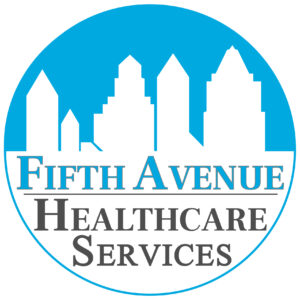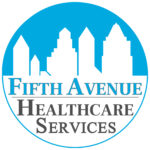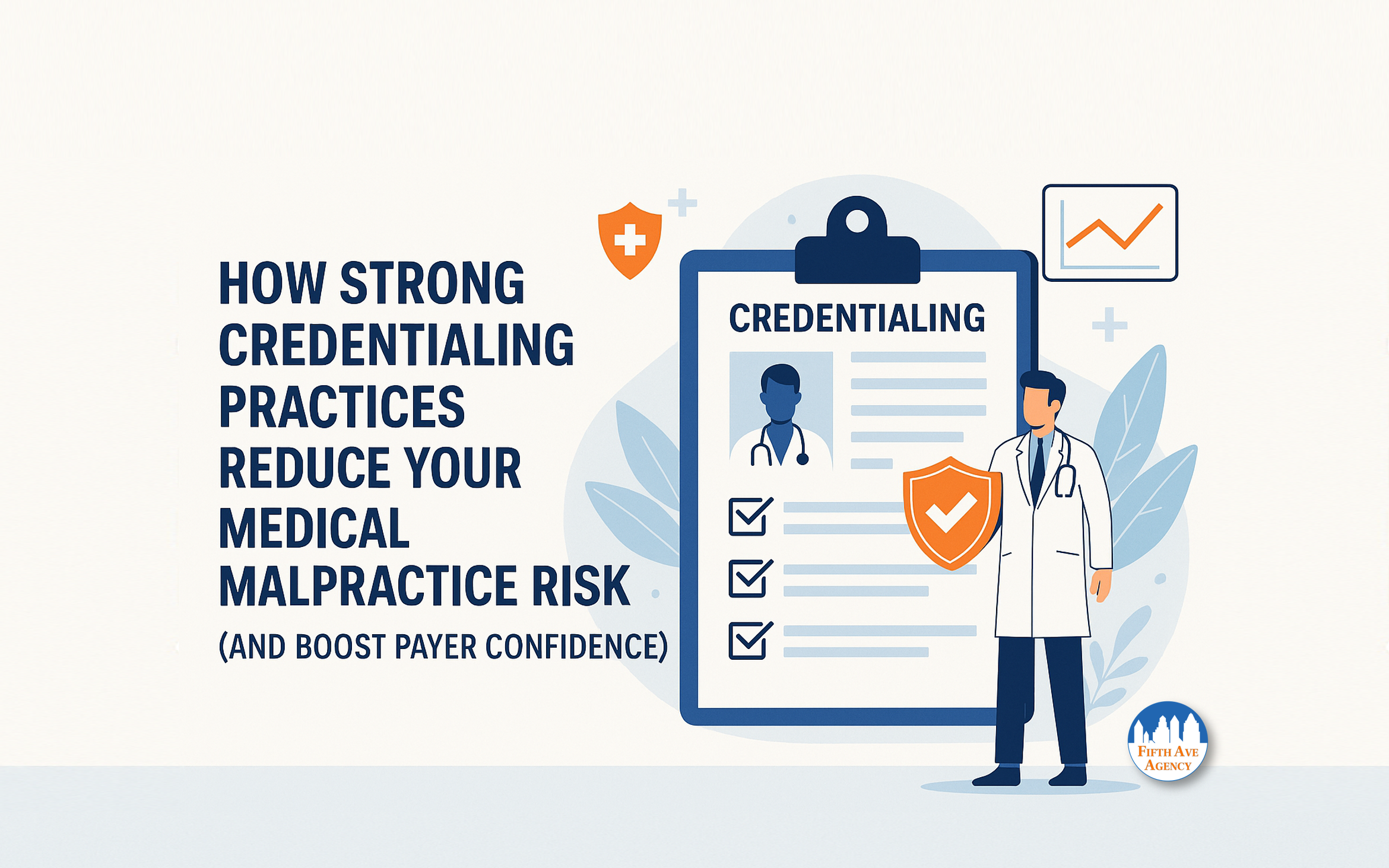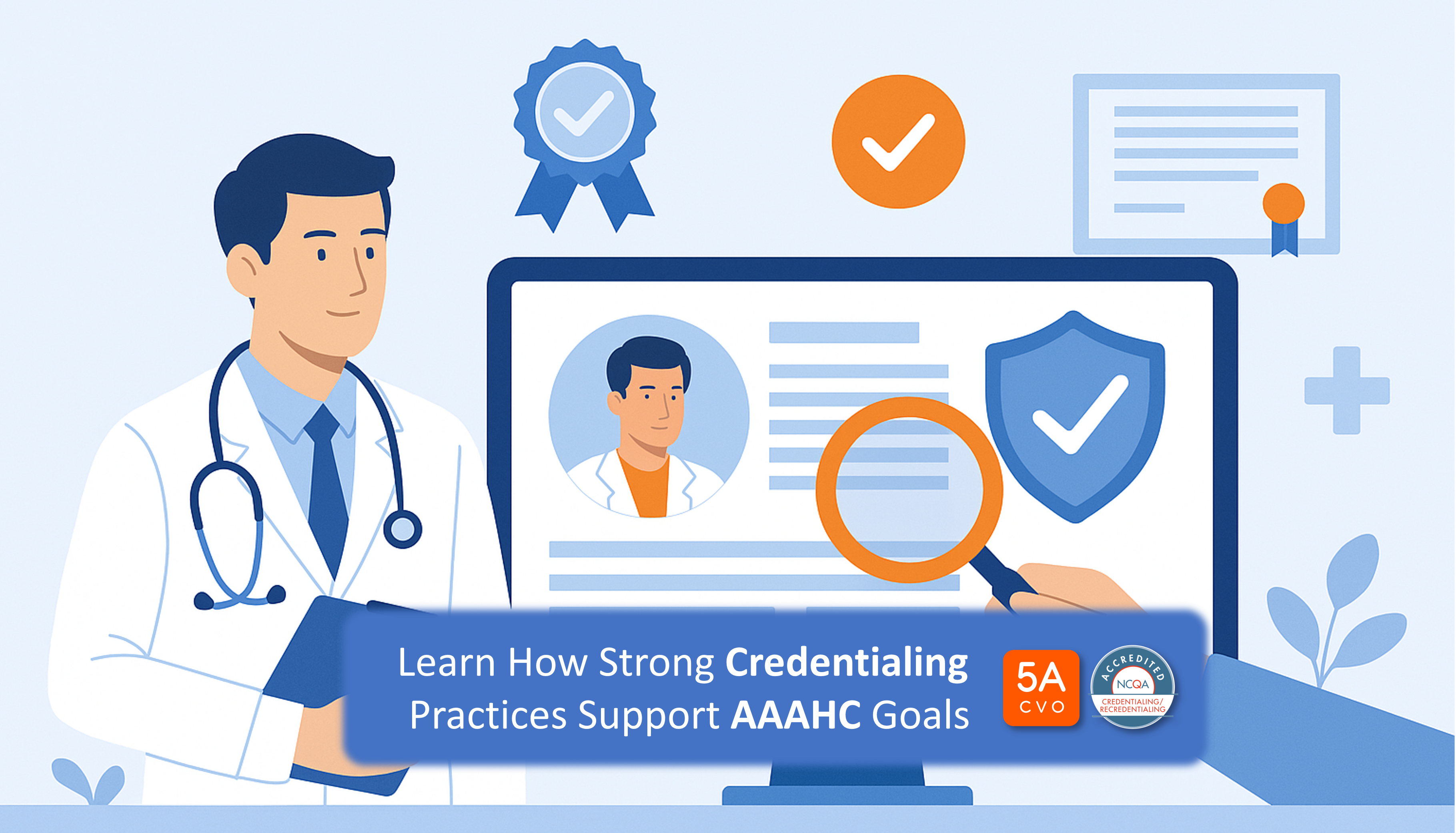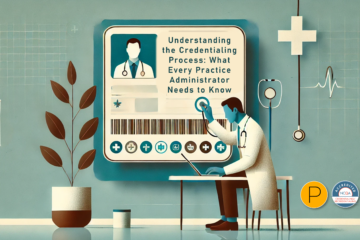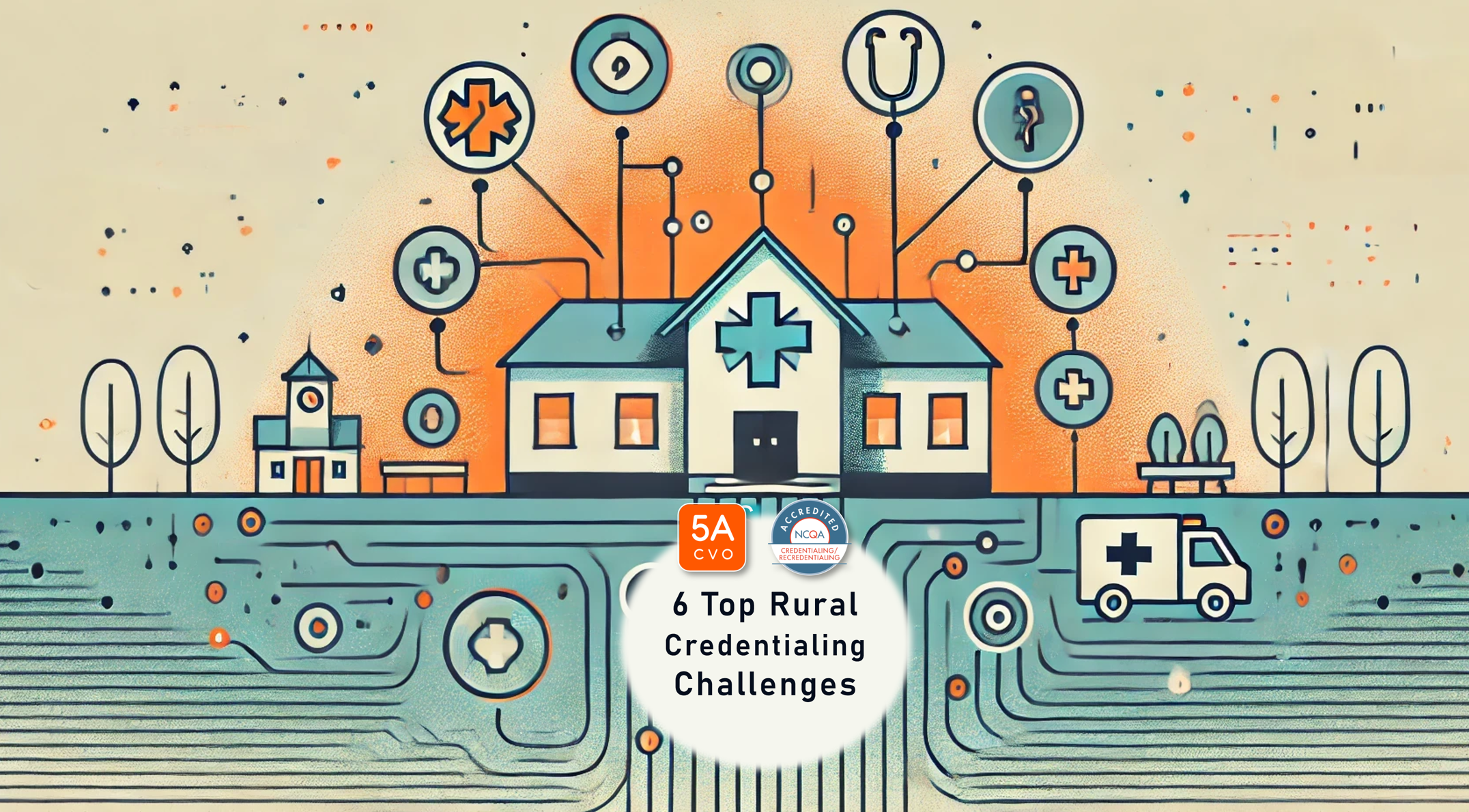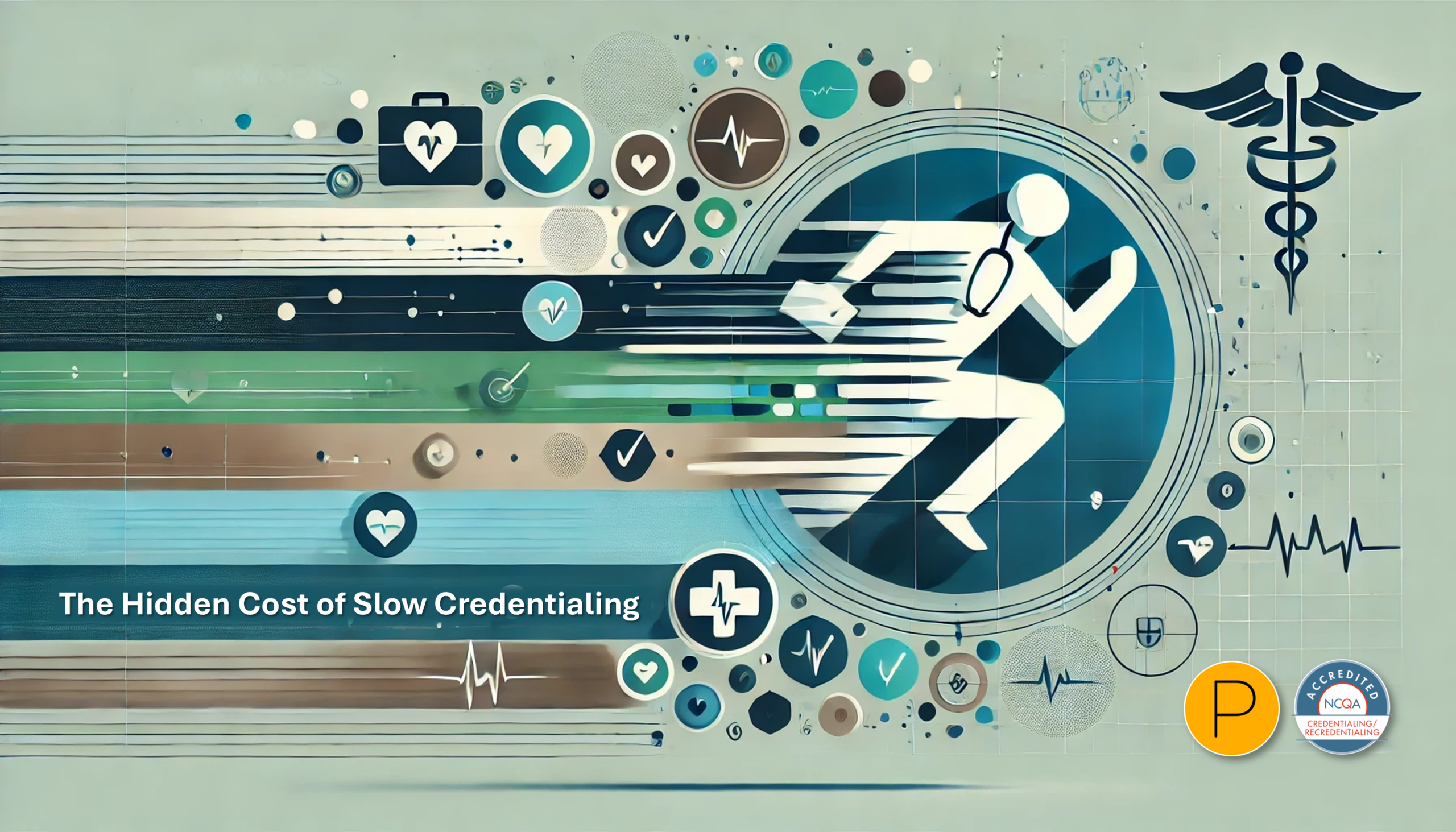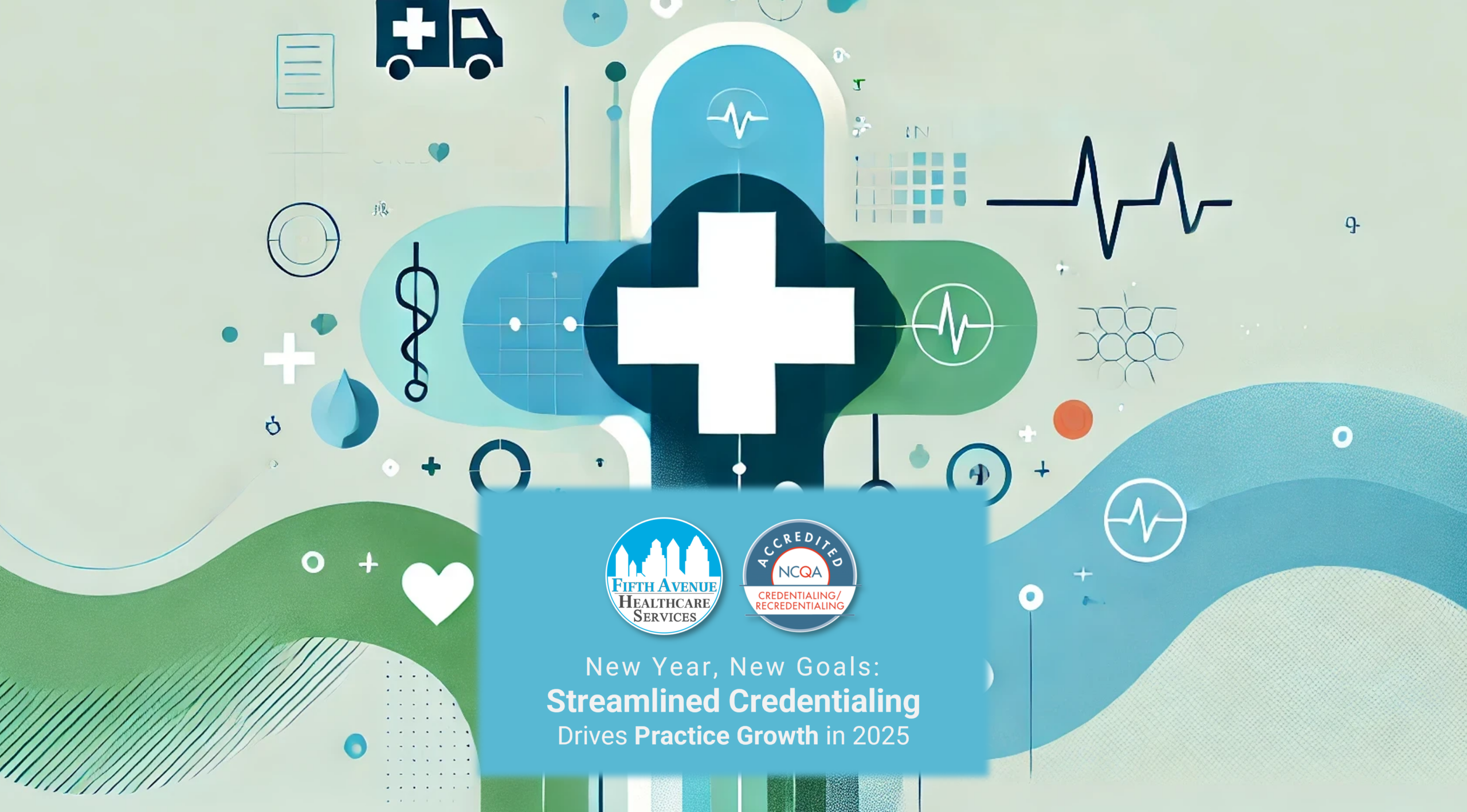In the realm of ambulatory healthcare, accreditation serves as a critical benchmark for ensuring high-quality care and patient safety. The Accreditation Association for Ambulatory Health Care (AAAHC) is a leading organization dedicated to advancing healthcare quality in ambulatory settings.
This comprehensive article will delve into the fundamental aspects of AAAHC accreditation standards, their importance, and how Fifth Avenue Healthcare Services aligns with these standards to deliver excellence in healthcare.
AAAHC: Pioneering Excellence in Ambulatory Care
Established in 1979, the Accreditation Association for Ambulatory Health Care (AAAHC) is a nonprofit organization committed to promoting quality improvement and patient safety in ambulatory healthcare settings. It has gained recognition as a prominent accrediting body, encompassing various healthcare organizations such as ambulatory surgery centers, community health centers, office-based surgery practices, and urgent care centers.

The Significance of AAAHC Accreditation
AAAHC accreditation holds immense significance for healthcare organizations striving to provide exceptional care and instill patient confidence. It signifies that a facility has undergone a rigorous evaluation process, including an on-site survey conducted by experienced healthcare professionals.
Let’s explore three key benefits of AAAHC accreditation:
- Elevating Patient Trust: AAAHC accreditation fosters patient confidence by assuring them that the facility adheres to rigorous quality and safety standards. Patients can trust in the care they receive.
- Driving Operational Excellence: AAAHC accreditation encourages the implementation of best practices, ensuring operational efficiency and enabling healthcare facilities to continually improve patient outcomes.
- Regulatory Compliance: Accreditation ensures compliance with state and federal regulations, reducing the risk of legal and regulatory issues.
Comprehensive Overview of AAAHC Accreditation Standards
AAAHC accreditation standards cover various domains to assess an organization’s commitment to safe, effective, patient-centered care. These standards encompass critical areas such as governance, patient rights, quality improvement, patient care and management, and patient safety.
Let’s explore some of the core components of AAAHC accreditation standards:
- Governance: This domain focuses on the facility’s leadership, management, and governance structure to ensure effective decision-making, accountability, and ethical practices.
- Patient Rights and Responsibilities: AAAHC emphasizes the importance of respecting patient rights, privacy, and informed decision-making, empowering patients to actively participate in their healthcare journey.
- Quality Improvement: AAAHC promotes a culture of continuous quality improvement, urging healthcare organizations to establish systems for data-driven decision-making, performance monitoring, and implementing evidence-based practices.
- Patient Care and Management: This domain encompasses the entire patient care process, from initial assessment to discharge, emphasizing comprehensive care, care coordination, and effective communication among healthcare providers.
- Patient Safety: AAAHC accreditation standards prioritize patient safety by addressing infection control, medication management, clinical guidelines, emergency preparedness, and other crucial aspects.
Ten Reasons for Choosing AAAHC Accreditation
When considering AAAHC accreditation, healthcare organizations often have compelling reasons to pursue it. Here are ten top benefits of choosing AAAHC accreditation:
- Demonstrating Commitment: AAAHC accreditation showcases an organization’s dedication to providing safe, high-quality care.
- Enhanced Reputation: Accreditation enhances a facility’s reputation and credibility within the healthcare industry and among patients.
- Patient Satisfaction: By adhering to AAAHC standards, healthcare organizations improve patient satisfaction and experiences.
- Quality Improvement Initiatives: AAAHC accreditation stimulates quality improvement initiatives, driving positive outcomes for patients.
- Risk Management: Accreditation helps mitigate risks by implementing standardized processes and protocols.
- Attracting Physicians and Staff: AAAHC accreditation makes healthcare facilities more attractive to skilled physicians and staff who seek to work in reputable organizations.
- Streamlined Operations: Accreditation standards streamline operations, leading to increased efficiency and productivity.
- Competitive Advantage: Accreditation differentiates healthcare organizations from competitors and positions them as leaders in the industry.
- Meeting Regulatory Requirements: AAAHC accreditation ensures compliance with regulatory standards and reduces the risk of penalties.
- Continual Learning and Growth: The accreditation process encourages ongoing education and growth for healthcare professionals, fostering a culture of excellence.
The Role of Technology in AAAHC Accreditation
In today’s digital age, technology plays a crucial role in healthcare, including the AAAHC accreditation process. Technology empowers healthcare organizations to streamline operations, enhance patient care, and drive continuous quality improvement.

Here are some key areas where technology contributes to AAAHC accreditation:
- Electronic Health Records (EHR): Implementing EHR systems allows for efficient and secure management of patient data, enhancing care coordination and patient safety.
- Quality and Performance Measurement: Technology enables healthcare facilities to collect, analyze, and report quality and performance data, facilitating data-driven decision-making and quality improvement initiatives.
- Patient Engagement: Digital platforms, such as patient portals and mobile applications, enhance patient engagement, communication, and access to healthcare services.
- Telehealth and Remote Care: Technology-enabled telehealth services provide convenient access to healthcare, especially in remote areas, improving patient access and reducing barriers to care.
- Regulatory Compliance: Health information technology solutions assist in meeting regulatory requirements, such as data privacy and security standards.
- Data Analytics: Advanced analytics tools help healthcare organizations identify trends, patterns, and areas for improvement, driving data-informed decision-making.
Factors That May Influence the Decision Not to Pursue AAAHC Accreditation
While AAAHC accreditation offers numerous benefits, some healthcare facilities may opt not to pursue it due to various factors.
Let’s explore four reasons why a facility may choose not to pursue AAAHC accreditation:
- Specialty-Focused Accreditation: Some facilities may prioritize specialty-focused accreditations specific to their field, such as radiology, cardiology, or oncology.
- Cost Considerations: The accreditation process involves application fees, on-site surveys, and ongoing maintenance costs. Facilities with budget constraints may prioritize other financial needs.
- Alternative Accreditation: Healthcare organizations may opt for accreditation from other reputable bodies, such as The Joint Commission or the National Committee for Quality Assurance (NCQA), based on their specific needs and goals.
- Resource Limitations: The accreditation process requires significant time, effort, and resources. Facilities with limited resources may focus on other priorities or initiatives.
Conclusion of AAAHC Accreditation Standards: Ensuring Excellence in Ambulatory Healthcare
AAAHC accreditation is paramount in ambulatory healthcare, elevating patient trust, driving quality improvement, and ensuring regulatory compliance.
Healthcare facilities have numerous reasons to pursue AAAHC accreditation, from enhancing reputation and patient satisfaction to risk management and operational excellence. However, individual circumstances, such as specialty focus, cost considerations, alternative accreditations, or resource limitations, may influence a facility’s decision not to pursue AAAHC accreditation.
Fifth Avenue Healthcare Services recognizes the value of AAAHC accreditation and assists healthcare organizations in achieving and maintaining this prestigious distinction.
More information about Fifth Avenue Healthcare Services
Fifth Avenue Healthcare Services is an NCQA Credentialing Accredited family of healthcare companies. Sister companies include 5ACVO (credentialing and primary source verification specialists), Fifth Avenue Agency (MPLI and medical malpractice insurance specialists), and Primoris Credentialing Network (credentialing and provider enrollment specialists with 54+ health plan and network provider enrollment options).
Fifth Avenue Healthcare Services initially published this article here. For information on Fifth Avenue Healthcare Services, please visit FifthAvenueHealthcareService.com or Contact Us.

